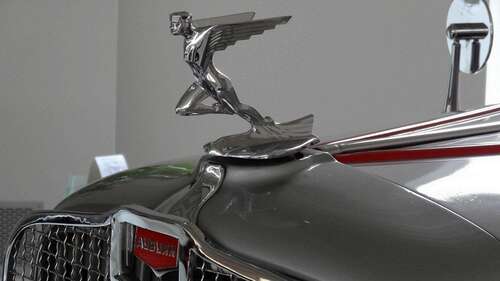
The Beauty-Six was marketed nationally and, with a sticker price of “just” $1,595, sold more than 6,000 units (a new company record). Then, in 1920, a brief, severe recession hit the United States.
The Forgotten Depression (not the “Great Depression” that would come later that same decade) was an 18-month period caused by the global economic turmoil following WWI. It saw the U.S. stock market drop in value by almost 50% and corporate profits decline by more than 90%.
By 1924, Auburn was still making cars, but not a profit. The hiring of Errett Lobban Cord changed that. If the name sounds familiar, he was known not just for his work at Auburn but also for owning a host of other companies such as Duesenberg, Lycoming Motor Works, Aviation Corp. (American Airways), Checker Cab Manufacturing Corp., and New York Shipbuilding Corp.
Before all that, Cord worked at Moon Automobile Company in Chicago and went from salesman to general manager, then director in less than five years. Some sources claim he was simply hired as the vice president and general manager for Auburn but quickly made president within a year or two.
Other sources say Cord knew the investment group was looking to sell and made a counterproposal. He would forgo a salary in exchange for 20% of the profits, the power to make all decisions, and the right to purchase the company when it made money again.
[Featured image by Time Inc. via Wikimedia Commons | Cropped and scaled | CC BY PUBLIC DOMAIN]

